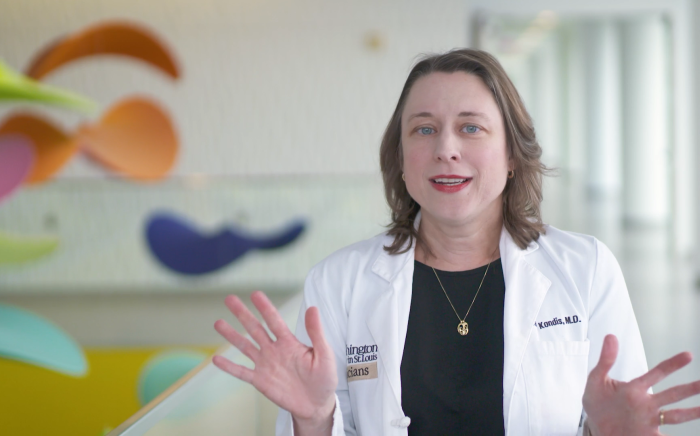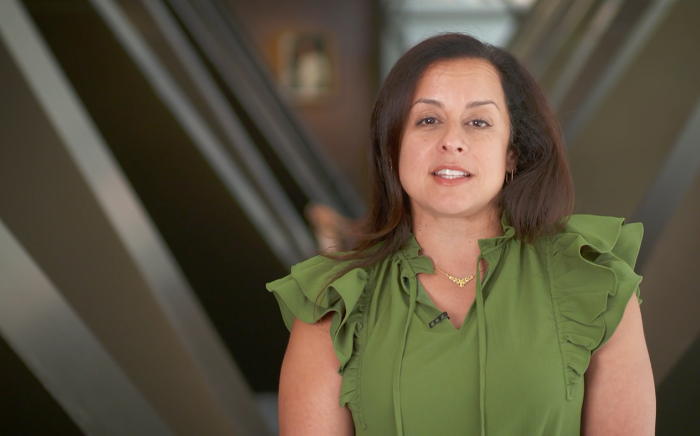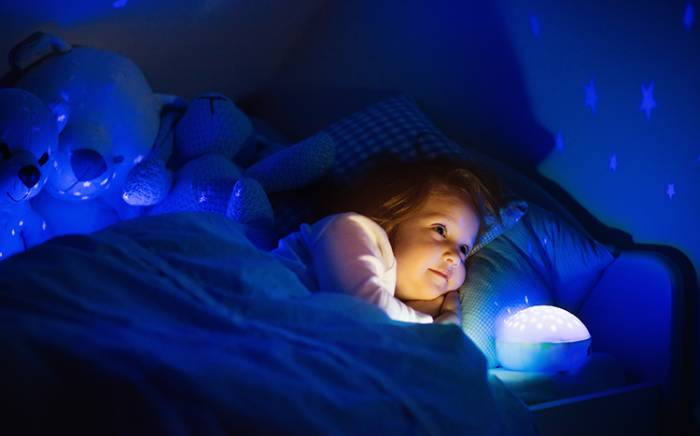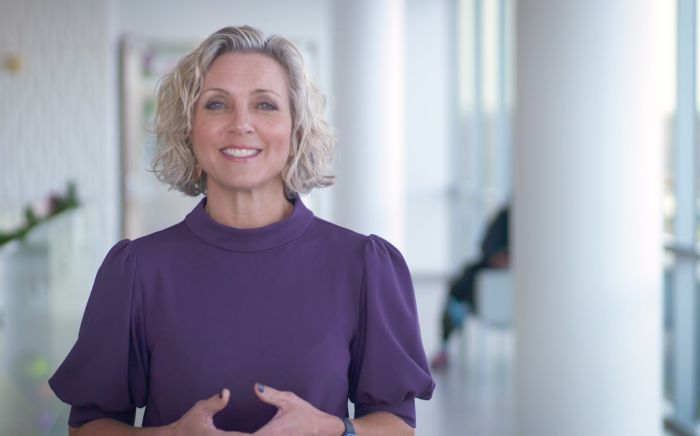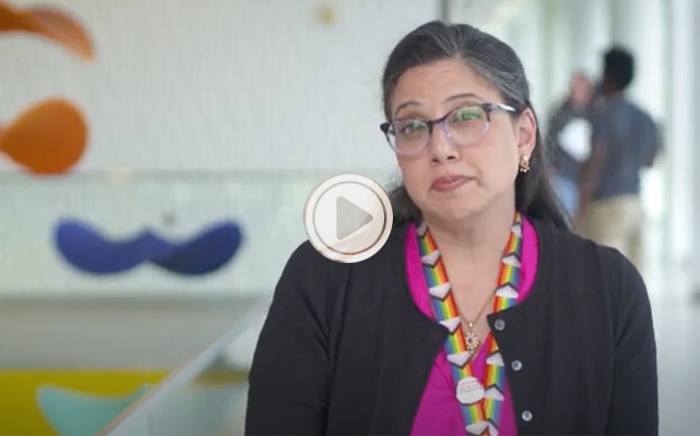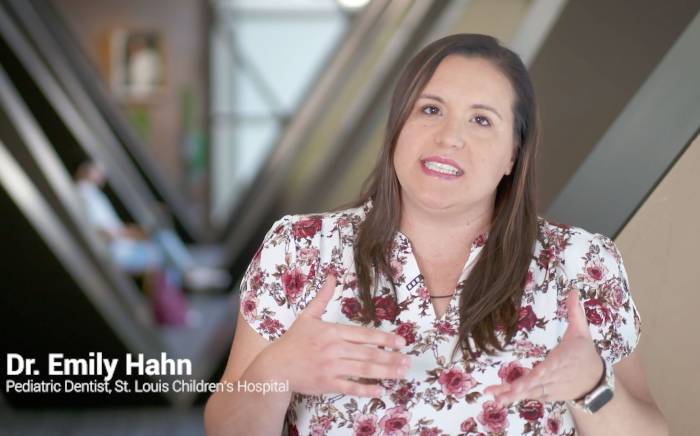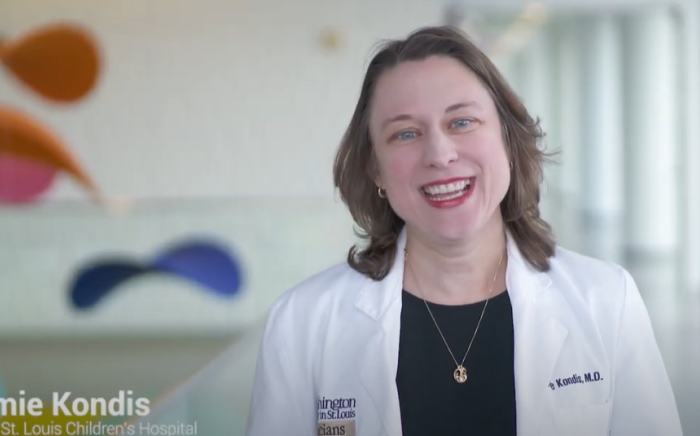Care at the CDH Clinic
The Congenital Diaphragmatic Hernia (CDH) Clinic is a medical home for CDH patients and families. A multidisciplinary team of experts in the challenges faced by CDH patients, provide care in the following areas:
- Chronic lung disease: lungs affected by CDH are underdeveloped at birth, and some CDH patients may continue to experience breathing difficulties as they get older. This may mean they need oxygen and other breathing supports like a ventilator at home. Upper respiratory illnesses like the common cold can make these breathing issues worse and CDH patients may experience symptoms like rapid or difficulty breathing, extra use of chest and abdominal muscles, wheezing, easy fatigue during or after feedings, and pale or gray skin around the mouth.
- Reherniation of the diaphragm: It is possible that your child may require additional surgeries in the future to repair reherniation, or recurrence of the diaphragmatic hernia. Babies with particularly large diaphragmatic hernias are more likely to reherniate as they grow. If you notice your child showing signs of significant abdominal pain, vomiting, gagging, and having difficulty breathing, take them to the emergency room right away.
- Pulmonary hypertension: The high blood pressure in your baby’s lungs may take months to years to resolve. There are medicines that can help manage the condition while your baby is in the hospital. If your child remained on medicines at the time of discharge, the CDH clinic will work with a Pulmonary Hypertension team of heart specialists to complete that treatment. Your follow up at CDH clinic may also include an echo cardiogram (heart ultrasound) and appointment with the Pulmonary Hypertension team.
- Reactive airway disease/Asthma: Symptoms may include wheezing, rapid shallow breathing, with or without dry cough. Our CDH lung specialist, a pediatric pulmonologist, will continue to follow your child, prescribe medicines if needed and develop an Asthma action plan with you to keep your child healthy and active. The CDH clinic will also work with your child’s pediatrician to manage these symptoms.
- Developmental delays, behavioral issues and Autism: Reaching developmental milestones may be delayed in CDH children. The CDH team focuses on early screening and diagnosis leading to early intervention and developmentally-appropriate therapies to ensure continued progress after leaving the hospital. Our neurologists and therapists also screen CDH patients for behavioral issues like attention deficit hyperactive disorder (ADHD) and Autism spectrum disorder (ASD). If needed, we can also refer children to see a child psychologist and/or psychiatrist.
- Bowel obstruction: scar tissue from previous surgery can cause twisting or narrowing of bowels, resulting in complete or partial blockage. It prevents food and gas from moving through the bowels. Symptoms include vomiting and abdominal pain. If bowel obstruction is suspected, please reach out to the CDH clinic. You may need an X-ray or urgent exam. Rarely, abdominal surgery is needed to provide relief.
- GERD/reflux: is also quite common among CDH children and can continue in adulthood. Symptoms result from an irritation of the esophagus (food pipe) lining caused by stomach acid moving backward. Abnormal stomach and sphincter position and slow stomach motility in CDH patients increase the risk of reflux.
- Growth failure: CDH children need more calories and protein for continued healing and growth. At the time of hospital discharge into the first 24 months, there is a 45% risk of malnutrition in CDH children. Treatment usually requires supplemental feeding through feeding tube or gastrostomy tube. Our dieticians will continue to screen, follow weight closely and provide recommendations to avoid malnutrition. Despite increased calories, some patients may continue to have trouble gaining weight in the first years of life.
- Oral aversion: reluctance or refusal to eat by mouth. It is usually a result of a prolonged and difficult hospital course with no feeding for several weeks, oral sensitivities, hyperactive gag and GRED/reflux. Your child may go home from the NICU with a nasogastric or gastrostomy feeding tube. Before leaving the hospital, parents and caretakes will learn how to safely care for and feed their baby. Oral aversion typically resolve overtime. Our therapy and feeding team will continue to work with you closely.
- Hearing loss: Hearing can be affected due to many reasons. It is important to recognize hearing loss early. Screenings take place before leaving the hospital, and additional testing is performed during clinic visits until they become school age.
- Musculoskeletal deformities: the chest wall may develop asymmetrically, or be sized differently on each side, due to the changing breathing process in CDH patients. Scoliosis, a curved spine, can also develop as patients grow, especially for those with a very large defect and poor body tone for several months. In the clinic, Scoliosis is screened for using an X-rays and if scoliosis is severe, we can refer to an Orthopedic specialist.





